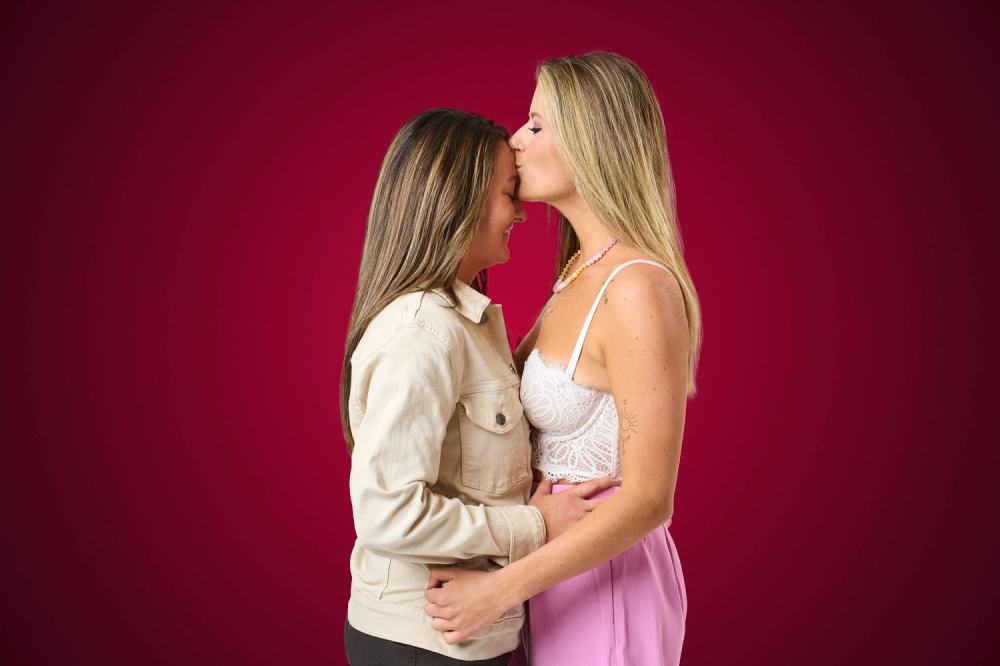Tacky, matching tattoos of a four-leaf clover. Aggressive innuendo about liking Brussels sprouts. Secret, sexy Spotify playlists. Tears, trial wives, and collective lusting after Teyana Taylor.
Season 2 of Netflix’s “The Ultimatum: Queer Love” did not disappoint in terms of lesbian drama. Yet, if what we’re really talking about here is queer love, why are we giving ultimatums about marriage, which, by its very design, as countless feminists have explained to us, is a patriarchal, racist construct meant to perpetuate the existing social order? What is queer about marriage? Not much, I’d argue, after sitting through nine outrageous episodes (plus a reunion).
If what we’re really talking about here is queer love, why are we giving ultimatums about marriage?
Netflix tries to sell this reality series as a kind of social experiment meant to test the bonds of queer couples’ commitment. But from the premise of the show to the participants’ expressed desires and beliefs about marriage, the show feels saturated in heteronormativity — proving that, if anyone is being “groomed,” it’s gay people into the hetero lifestyle.
As historian Hugh Ryan wrote more than a decade ago, when states were beginning to legalize marriage for gay people, the marriage institution has “straightened us. … Marriage is here, it’s not queer, and we’ve already gotten used to it.” And lawyer Dean Spade explained how “same-sex marriage advocacy has bolstered conservative mythologies about how marriage is about love and is the best way to have a family.”
Indeed, the show’s premise relies on the romantic fantasy of marriage as the final, permanent step of a relationship, and a necessary step in the traditional, heteronormative narrative of life: First comes love, then comes marriage, then comes baby in the baby carriage. So goes the popular nursery rhyme that’s been socially engrained into us since childhood.
Each of the show’s six couples seem to be at an impasse in their relationship — the assumption being, again, that relationships must progress to marriage in order to be permanent or complete.
The ultimatum-giver presents the ultimatum-receiver with a choice: either they want to get married, or the ultimatum-giver will walk away. There is, in the show’s logic, no in between, no queer time or space. After ultimatums are issued, all 12 participants date each other and select a “trial wife” to experience a “trial marriage” for a total of three weeks before returning to their exes — their original partners — for a final three weeks before Ultimatum Day, when couples make their so-called final decision about their future.
The ultimatum-givers seem to all understand marriage in very traditional terms, of providing “permanence,” “finality” and “stability” — the certainty, until death do us part, of the contract. “I want to have that finality of it all,” Marie says of marriage, in the first episode. Other ultimatum-givers describe marriage similarly: For Haley, it is “one more, deeper step,” and for Bridget, “marriage is the next step.” All the while I kept asking, One more step toward what — death? Also, have these lesbians never heard of divorce? Not one person articulates the purpose of marriage outside of its traditional understanding as a legal, social and religious contract that establishes the gay couple’s legitimacy to society.











